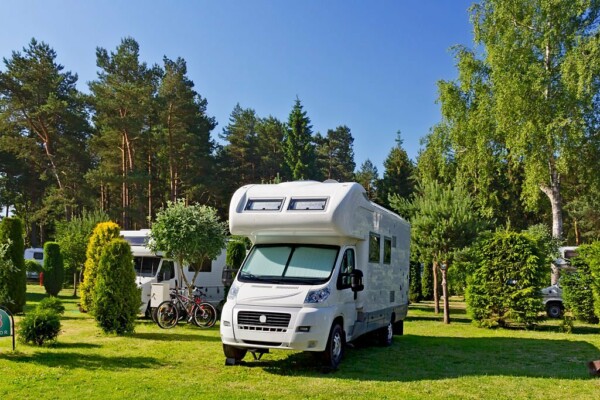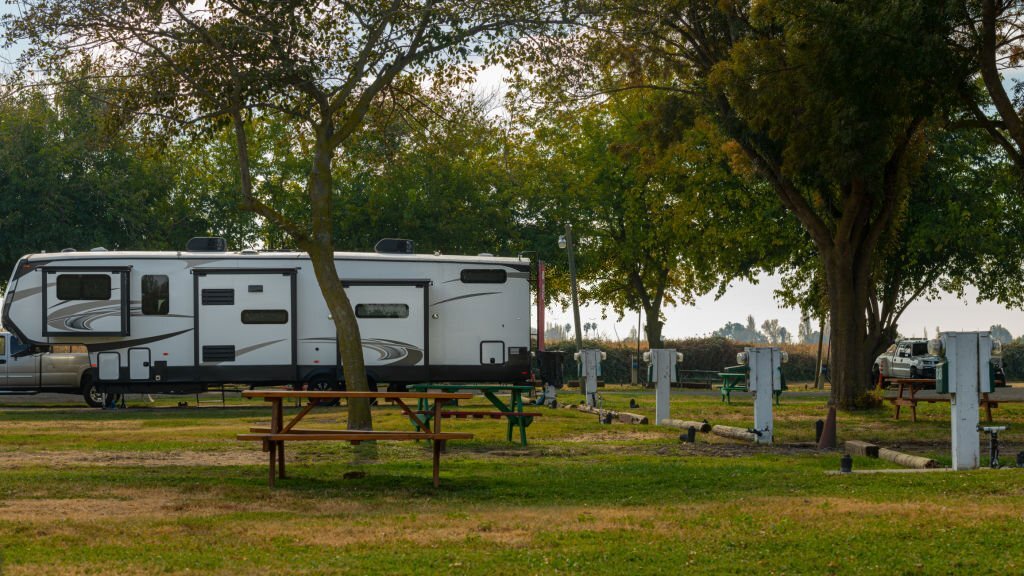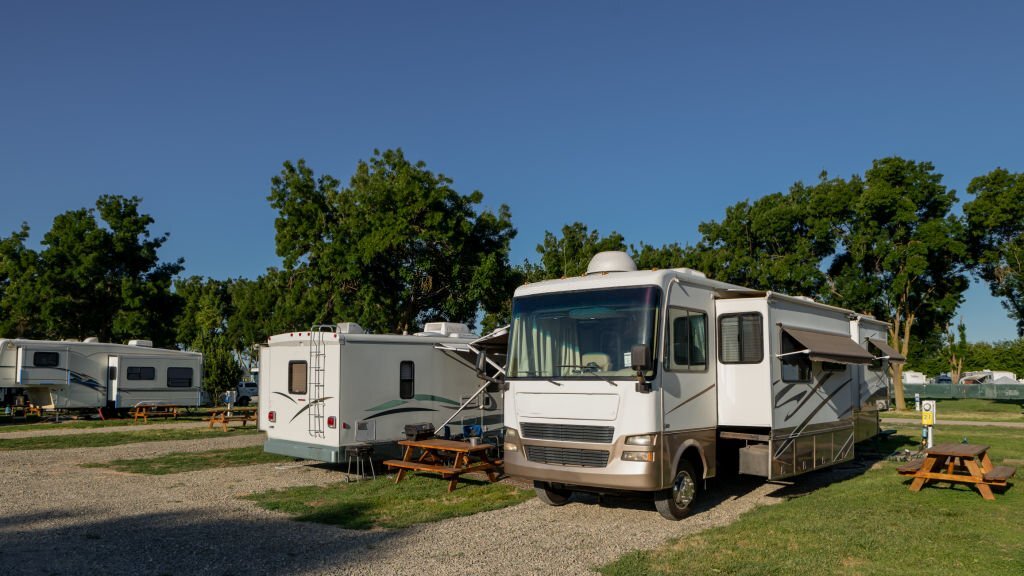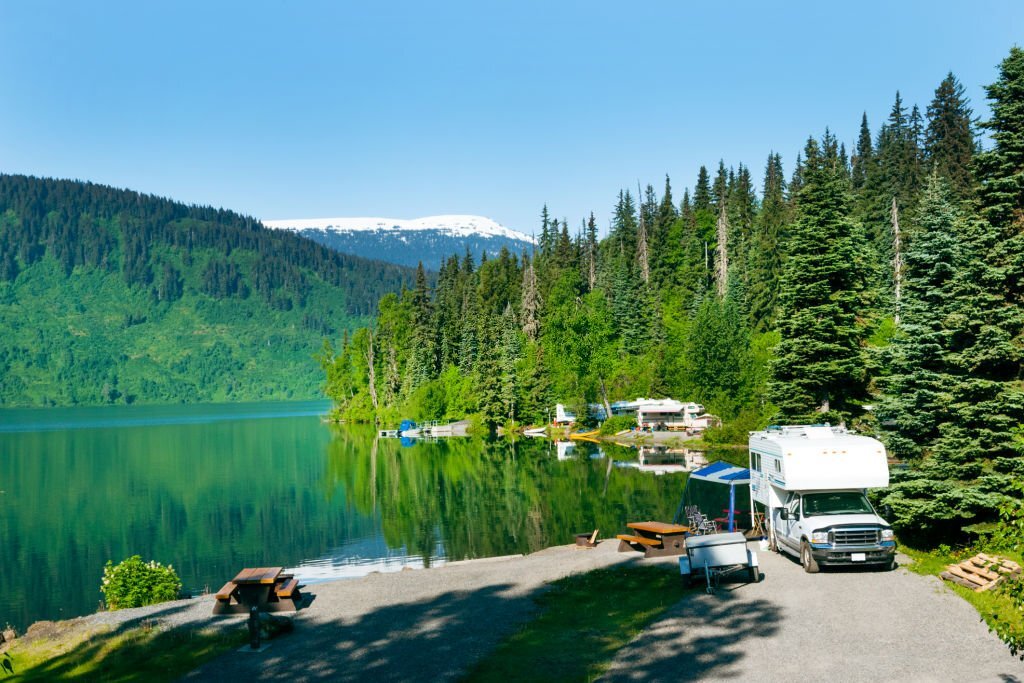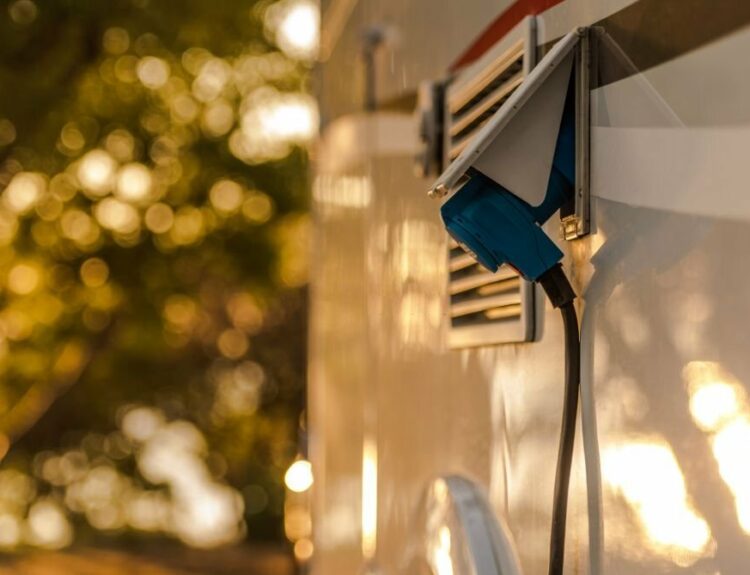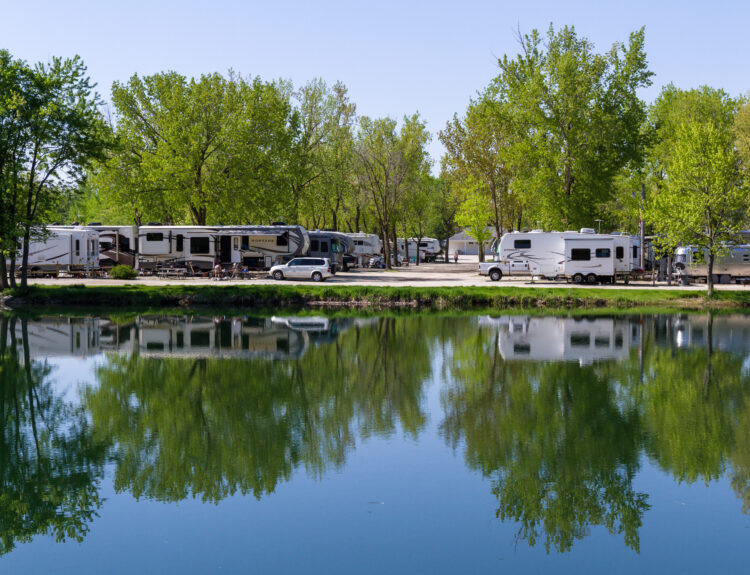Campgrounds and RV parks are not only profitable ventures but also rewarding experiences that allow you to share your passion with others. Yet starting an RV park business requires an in-depth understanding of how the industry operates. In recent years, the market has experienced significant changes that it is important to be aware of.
Campers have become much more diverse in terms of age and ethnicity. A report by the RVIA has shown that RV ownership has increased by over 62% in the last twenty years, with significant growth among 18-to-34-year-olds, who now make up 22% of the market. Also, the share of caucasian campers experienced a significant decline in the 2012-2021 period, going from 88% to 65%.
In the meanwhile, digital platforms and tools have totally transformed the way RV parks are managed and marketed. And while they have contributed to enhancing management and marketing strategies, they have also created a highly competitive digital landscape in which businesses need to go the extra mile to stand out.
Starting an RV park is not as simple as pitching a tent or parking a trailer. It requires careful planning, research, investment, and management. You need to consider many factors, such as location, market, regulations, amenities, marketing, and more.
Here, we will guide you through the main steps and considerations for starting an RV park business. We will also explore how to leverage the wide set of digital tools available for campgrounds today, and that can help you maximize revenue in your RV park or campground.
Step 1: Research & Analysis
Good decision-making is grounded in accurate information. So before you start your RV park business, you need to do some research and analysis that will allow you to make some important decisions and plans.
Research and analysis will help you gain a clear understanding of the market, your competition, and your opportunities. You can also avoid potential pitfalls and challenges that may arise in the future.
What Kind of Park you Want to Open?
The first thing you need to decide is what kind of park you are going to open. Basically, you have two options: buying an existing park or building a new one.
Buying an existing park has some advantages, such as having an established customer base, reputation, infrastructure, and income. However, it also has some drawbacks. You are very likely to encounter previously existing problems, limitations, and liabilities. You may also have to pay a premium price for a successful park or settle for a less desirable location or condition.
Building a new park gives you more freedom and flexibility to choose your location, design, features, and niche. However, it also involves more risk, time, and money. You will have to find suitable land, obtain permits and licenses, develop the site, install utilities and amenities, and attract customers from scratch.
Location & Amenities
A thorough market research and analysis will help you identify your target market, their needs and preferences, and how you can meet them. You also need to assess the competition in your area, their strengths and weaknesses, and how you can differentiate yourself from them.
Consider the location of your park carefully. Location determines a whole set of key factors such as demand, seasonality, pricing, and profitability of your park. Make sure you choose a location that has enough traffic and potential customers but not too much competition or saturation. Nearby natural attractions, activities, and amenities can appeal to your target market.
Ensure that the location is well-connected to main roads and highways, making it convenient for travelers to reach your park. Access to nearby amenities, such as grocery stores, gas stations, and restaurants, is also essential for guest convenience.
Legal & Regulatory Requirements
Additionally, you need to consider the permits, regulations, and environmental impacts of your location. Different locations may have different zoning codes, building codes, health codes, fire codes, etc. that you need to comply with.
Understanding health, safety, and environmental regulations is also essential to provide a safe and enjoyable experience for your guests. By carefully adhering to these regulations, you can create an environment that attracts visitors while avoiding potential legal issues.
Step 2: Develop a Strategic Business Plan
A business plan is a document that describes your business idea, goals, strategies, and projections. It helps you organize your thoughts, plan your actions, secure funding, and measure your results.
A good business plan should serve as a roadmap for you during the launch process and then help you stay on track with your business objectives as you progress. But the planning ahead does not stop on the day of your opening. As a campground owner, you will need to be ready to face various business challenges as you expand.
Just to give you a heads-up of these, a study by the RV Park University found that some of the most common worries that RV park owners have are banking instability, federal government shutdowns, employee liability, and weather events. Other factors that can affect your income are changes in demand, costs, inefficient processes, or shortage of revenue sources.
Remember that, at this stage defining your campground or RV park’s purpose is crucial as it sets the foundation for your business. This includes identifying what makes your park unique and understanding the needs of your target market.
Creating a vision for the future allows you to set goals and strive towards continuous improvement, ensuring that you stay relevant in a competitive industry. Setting core values helps guide decision-making and establishes a strong culture within your business.
Main Components of an RV Park Business Plan
Below, we have listed the components that should be included in any campground or RV park business plan. Of course, this should only serve the purpose of giving you a general idea of how your business plan should look. But every particular business plan needs to be adjusted to the uniqueness of each campground.
- Executive summary: A brief overview of your business idea, why it will be successful, your mission statement, leadership team, location, and growth plans.
- Business description: A detailed description of what problem your campground or RV park is solving, your competitive advantages, and your strengths.
- Market analysis: A thorough analysis of your target market, its characteristics, needs, wants, and behaviors. A comprehensive analysis of your competitors, their offerings, prices, strengths, and weaknesses. Finally, an analysis of your own business, identifying your strengths, weaknesses, opportunities, and threats.
- Organization and management: A clear description of the legal structure of your company and the roles and responsibilities of your team members.
- Service: A detailed description of your service and why it is beneficial to your customers. A description of your accommodations, amenities, activities, events, etc. A description of your rates and policies.
- Marketing and sales: A strategic plan for how you will market and sell your service to your target market. A description of your marketing channels, tools, budget, and goals. A description of your sales process, methods, and techniques. We will explore all of these further below.
- Funding request: A specific request for how much funding you need to start and run your business for the first year or more. A justification for why you need the funding and how you will use it.
- Financial projections: A realistic projection of your income statement, balance sheet, cash flow statement, and break-even analysis for the first year or more. A description of your assumptions and risks.
Writing a business plan can be challenging and time-consuming, but it is worth the effort. A well-written business plan can help you secure funding from banks, investors, or partners. It can also help you manage your operations and measure your performance against your goals.
Step 3: Build or Buy Your RV Park
This third step is definitely the most expensive and complex of them all, as it involves a variety of tasks, costs, and decisions.
If you are buying an existing park, you will need to do some due diligence and inspection before closing the deal. You will need to verify the financial records, legal documents, permits, licenses, contracts, etc. of the park. Also, make sure you thoroughly inspect the condition, quality, and safety of the land, plus infrastructure, utilities, amenities, and equipment.
Building an RV Park or Campground From Scratch
Now, what if you have decided to build a park from scratch? Before opening your park, aside from obtaining all the necessary permits and licenses from the local authorities that we mentioned above, you will have to perform site development and construction.
To this end, you may have to hire contractors, consultants, advisors, and other professionals and specialists to help you along with the process.
The total cost of building a new park will depend on many factors, such as the size, location, design, and features of your park. It is generally estimated between $180,000 and $450,000. This covers buying and developing the land, creating the RV sites, and installing essential amenities such as a septic system, a water system, and hookups.
These are the steps and costs involved in building a new park:
- Land acquisition: Buying or leasing suitable land for your park. The cost of land will vary depending on the location, size, and condition of the land. You may also need to pay for surveys, appraisals, inspections, taxes, fees, etc.
- Site development: Preparing the land for your park. This may include clearing, grading, leveling, landscaping, fencing, etc. You may also need to install roads, parking lots, signs, lighting, etc.
- Utility installation: Installing water, sewer, electric, gas, phone, internet, cable, etc. hookups for each campsite. You may also need to install wells, septic tanks, generators, transformers, meters, etc.
- Amenities construction: Building or buying amenities for your park. This may include restrooms, showers, laundry facilities, dump stations, recreation rooms, playgrounds, pools, hot tubs, fire pits, picnic tables, grills, etc.
- Equipment purchase: Buying or renting equipment. This may include RVs, trailers, tents, cabins, cottages, yurts, etc. You may also need to buy or rent maintenance equipment, such as mowers, trimmers, blowers, rakes, shovels, etc.
Since amenities are essential to your brand identity and will ultimately define your capacity to attract the audience you have decided to target, we will explore more in detail how to plan for the building of amenities at your RV park.
Importance of Building Amenities Strategically
Amenities are the extra features and services that can enhance your customers’ experience and satisfaction. They help you attract and retain customers by differentiating yourself from your competitors.
But the type and quality of amenities that you offer should match your target market’s expectations and preferences. For example, if you are targeting families with children, you may want to offer amenities such as playgrounds, pools, games rooms, etc. If you are targeting seniors or retirees, you may want to offer amenities such as golf courses, spas, fitness centers, etc.
For the purpose of your business plan, it is also important to consider the cost and maintenance of amenities before you decide to build them. Some amenities may require more investment and upkeep than others. You should weigh the benefits and costs of each amenity and decide which ones are worth offering.
Building or buying a park can be a daunting task, but it can also be a rewarding one. You can save money, time, and hassle by planning ahead, doing your research, and hiring professionals to help you with the process.
Step 4: Manage and Market your RV Park or Campground
Unlike the 3 steps that we explored above, managing and marketing your park are ongoing tasks that require constant attention and improvement.
Enhancing Campground Management
Managing your park involves running the daily operations of your business. This means hiring and training staff, setting rates and policies, maintaining facilities and equipment, providing customer service, handling reservations and payments, keeping records and accounts, and more.
Luckily, the digital era provides a wide set of software tools that can help campgrounds improve their management capabilities. Managing and processing reservations, traditionally one of the most challenging administrative burdens in the business, can be streamlined using online booking platforms.
Booking platforms help you save time and resources for your guests and staff with features that make processing and making reservations easier. You can also automate your payment processing by accepting online payments from different sources, while also sending bills that your guests can easily pay online or from their phones.
High-quality reports provided by booking platforms can show you important metrics such as occupancy rate, revenue per available site, average length of stay, etc. Analyzing these metrics is essential to improve your decision-making process.
RoverPass campground reservation software was designed to act as the ultimate reservation software. It simplifies management by allowing campgrounds to view all reservations in one single dashboard, letting guests book campsites in a snap and staff streamline operations.
Plus, you can connect it can be connected to our Channel Management Optimizer to sync your bookings with up to 20 Online Travel Agencies.
Implementing Effective Marketing Strategies
Marketing your park involves promoting your business to attract and retain customers. There are plenty of channels and tools that will help you reach your target market and communicate your value proposition. A variety of different RV park marketing strategies will help you persuade your customers to choose your park over your competitors.
One of the most important marketing tools for your park is your website. Your website is the online storefront of your business, where you showcase your unique features, amenities, and atmosphere. Your website is also the main way to communicate with your potential customers and persuade them to book with you.
Your website is the first impression you make on potential campers, so you want it to be eye-catching and engaging. A good RV park website should reflect your brand identity, convey credibility, be easy to navigate, and effectively showcase your value proposition. All these characteristics will help you stand out from the competition and attract more customers.
At Roverpass, we know how important a website is for a campground’s success. That’s why we created Premium Website Builder, a solution that helps campgrounds build high-quality websites that work as 24/7 sales teams.
A great website is a link that connects all your marketing strategies to more bookings and revenue growth. Our team of expert writers, designers, and developers can ensure that your website turns more visitors into campers and boosts your income.
Other marketing channels and tools that will help you promote your RV park are:
- Social media: Social media platforms such as Facebook, Instagram, or TikTok help you engage with your audience and share updates and offers. You can also use social media ads to reach more potential customers and drive traffic to your website.
- Email Marketing: Email marketing lets RV park owners reach out to new and old guests. You can use email marketing to create lasting bonds with your guests, get more reservations and recommendations, and improve loyalty. Also, they allow you to share your park’s features, activities, and deals.
- Online Travel Agencies: Online travel agencies (OTAs) can help you get more guests for your RV park. Websites like Booking.com, Airbnb, Agoda, and Expedia are experts in advertising travel options. You can work with these platforms to increase your exposure and draw more customers from different places
- Discounts, promotions, loyalty programs, etc.: These strategies encourage repeat visits and word-of-mouth recommendations. Through email messages and social media, you can keep in touch with your customers and send them personalized offers and newsletters.
These marketing channels and tools will help you increase your online presence and visibility, build trust and loyalty, grow your customer base, and maximize revenue.
Starting an RV Park or Campground
Starting an RV park business can be a great way to turn your passion into profit. However, it requires careful planning, research, investment, and management.
Camping and RVing are on the rise in North America, with more people heading outdoors and more often. According to the 2021 North American Camping Report, camping accounts for 40% of all leisure travel trips in the U.S. and Canada.
This means that there is a huge opportunity for campground and RV park owners to tap into this growing market and provide them with memorable experiences. The steps and tips we explored in this article should help you with starting an RV park business that can provide you with income, satisfaction, and joy.
At RoverPass, our goal is to provide campgrounds with the tools they need to thrive in these exciting times for our industry. Keep reading our blog to learn more about the current trends in the RV park business!

